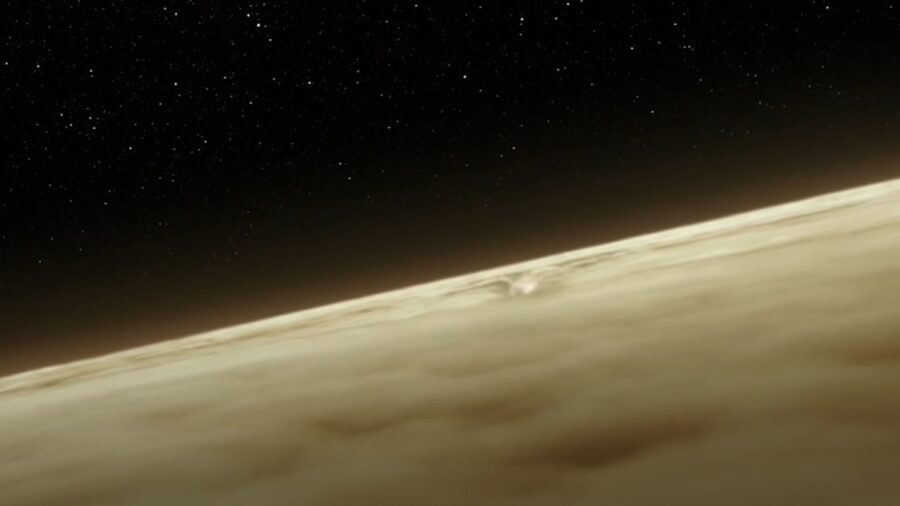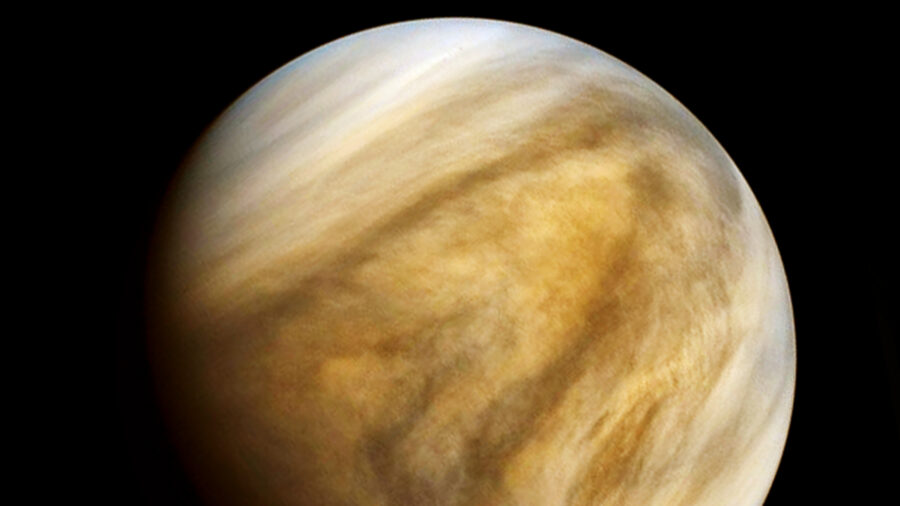Lights Are Flashing On Venus And No One Knows Why

First, scientists were stumped by mysterious flashing lights that appeared in Morocco just before the devastating earthquake that convulsed there earlier this month. Now, researchers have discovered more enigmatic flashing lights, this time a little further away from home. According to Futurism, astrophysicists are baffled by flashes of light appearing on Venus that are not caused by lightning but might result from thousands of meteors smashing into the planet’s atmosphere.
Lights seen in the atmosphere of Venus are not from a planet-wide storm as first thought but are, instead, possibly the result of meteors.
Venus is often called Earth’s evil twin because the two planets are similar in a lot of ways, but somewhere along their existence, Earth became habitable for lifeforms, and Venus became a scalding, hellish nightmare. Scientists have long been curious about this planet’s perplexing conditions, most recently including bizarre intermittent flashing lights observed on the planet’s surface. Researchers initially attributed these lights to lightning before realizing this possibility was impossible.
A recent study published in the Journal of Geophysical Research: Planets has proposed an intriguing alternative hypothesis. Researchers from Arizona State University (ASU) suggest that these flashes may not be lightning at all but rather the spectacular spectacle of tens of thousands of meteors incinerating in Venus’s scorching atmosphere.
If the mysterious flashes on Venus are indeed the result of meteor fireballs, it would eliminate the need for scientists to devise lightning-proof balloons to probe the planet’s atmosphere.
Space organizations from Europe, the United States, and the former Soviet Union previously detected signals from these flashes of light and believed them to be lighting. However, subsequent missions, including NASA’s Cassini probe, failed to confirm these radio signals. This baffling discrepancy prompted the ASU scientists to reevaluate the origin of these flashes of light.

One primary reason for questioning the lightning theory is Venus’s unique atmospheric composition. Unlike Earth, where lightning is primarily triggered by water vapor, Venus’s thick cloud cover consists predominantly of sulfuric acid. This crucial difference means the likelihood of lightning occurring in Venus’s harsh atmosphere is next to none.
Armed with data from the Steward Observatory and Japan’s Akatsuki Venus orbiter, the ASU research team embarked on a groundbreaking investigation. Their findings revealed that between 10,000 and 100,000 flashes of light occur each year, potentially corresponding with meteor fireballs infiltrating the planet’s surface — a number that is so high due to the planet’s proximity to the Sun.
The researchers proposed that the composition of Venus’s atmosphere plays a pivotal role in the brilliance of these fireballs. As meteors descend towards the planet, they encounter an atmosphere laden with sulfuric acid. The chemical reactions between the meteors and this acidic atmosphere could be responsible for the intense and luminous displays witnessed from afar.
Unlike Earth, where lightning is primarily triggered by water vapor, Venus’s thick cloud cover consists predominantly of sulfuric acid.
If the mysterious flashes on Venus are indeed the result of meteor fireballs, it would eliminate the need for scientists to devise lightning-proof balloons to probe the planet’s atmosphere. This alternative explanation could potentially simplify future missions to Venus. However, the researchers acknowledge the possibility of volcanic lightning on the planet’s surface, adding an additional layer of complexity to any prospective exploration.
The research highlights how little we truly comprehend about Venus. While this new theory may simplify future missions to the planet’s atmosphere, the potential presence of volcanic lightning could serve as another challenge. As we delve deeper into the mysteries of Venus, it’s clear that our knowledge of our solar system is an ever-evolving journey.












